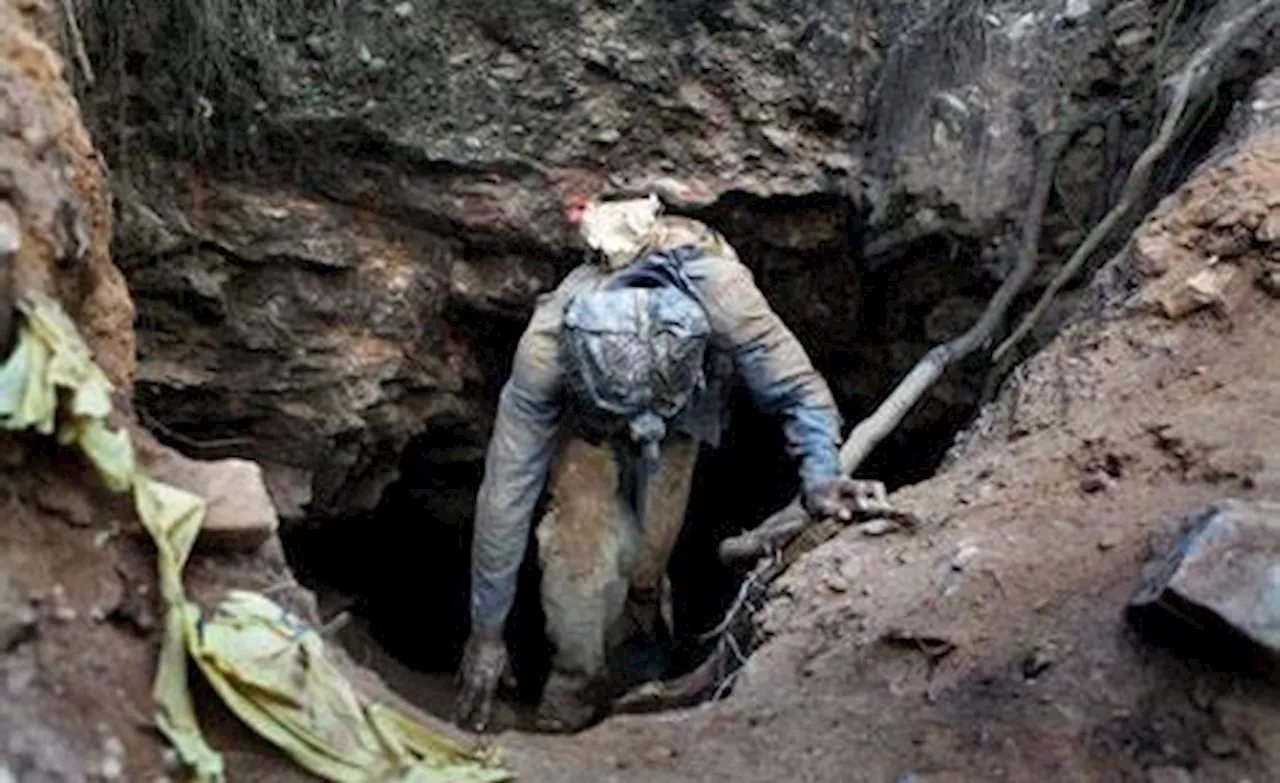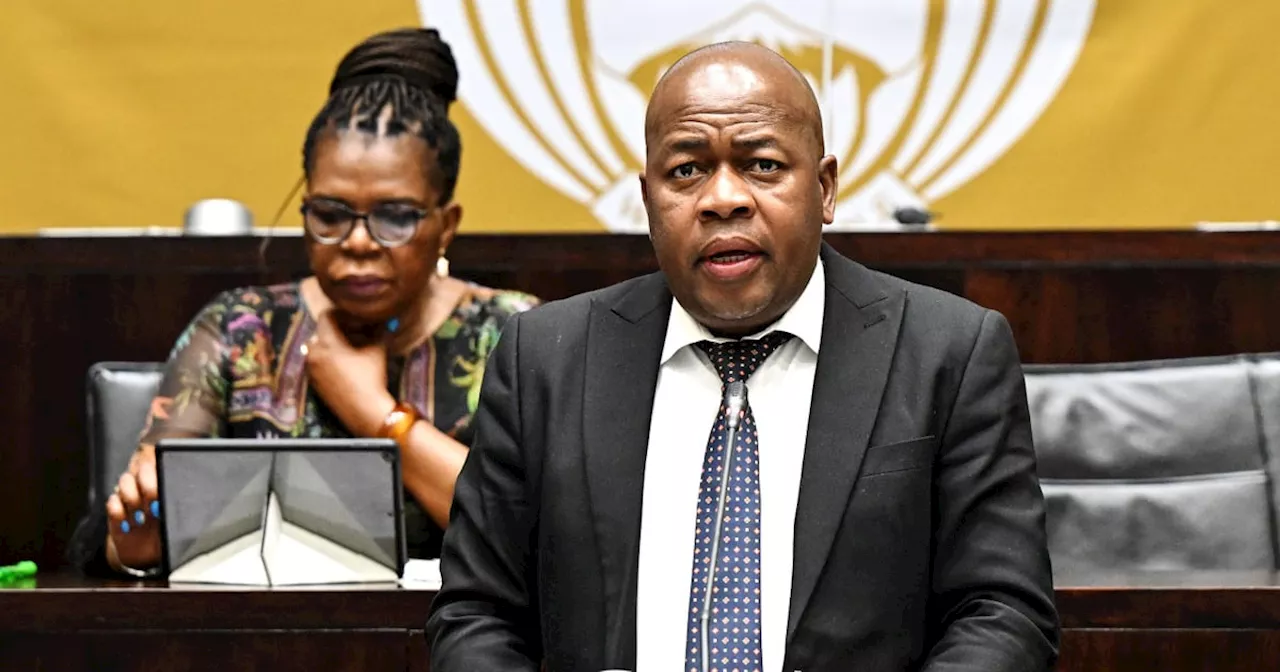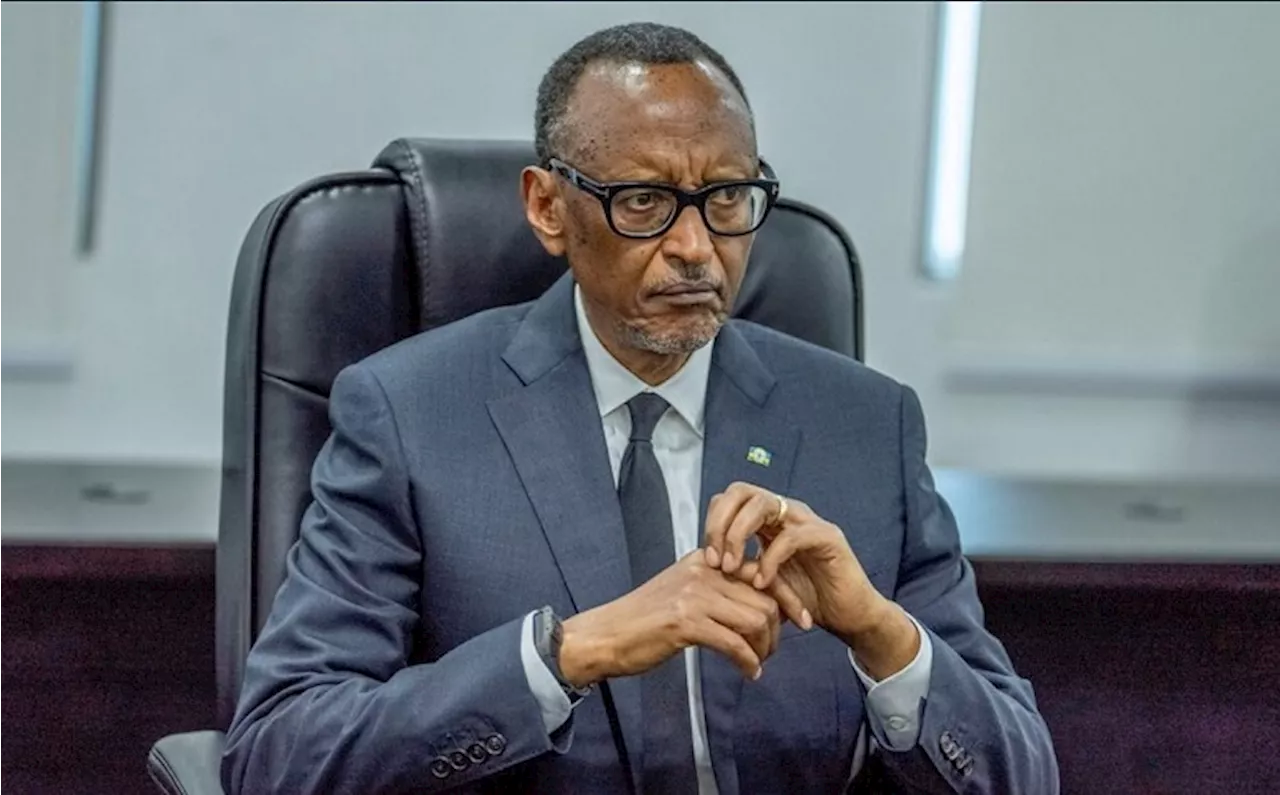South Africa's major banks faced scrutiny from Parliament over allegations of collusion, discrimination against Black-owned businesses, and anti-competitive practices. The hearing highlighted the continued dominance of white men in the financial sector, despite the country's commitment to transformation.
South Africa’s major banks appeared before Parliament’s Portfolio Committee on Trade and Industry today amid mounting allegations of collusion, discriminatory behavior targeting Black-owned businesses, and anti-competitive practices. For all the talk of a democratic South Africa, one industry remains trapped in the shackles of apartheid—banking.
Thirty years since the dawn of democracy, the financial sector is still a fortress of white male dominance, untouched by the promises of transformation. If one ever needed proof that economic apartheid is alive and well, look no further than the banks that continue to dictate the country’s financial future while shutting out the majority of its people. Parliament bore witness to yet another chapter in the endless saga of economic exclusion. Six of South Africa’s biggest banks lined up to present their reports, and yet, out of all their top executives, only one—Standard Bank’s CEO—was African. It is mostly white men who are steering the financial sector in a country where the overwhelming majority is black. The optics alone were jarring, a stark reminder that despite the politically correct statements issued every year, South Africa’s financial institutions remain playgrounds for an elite class unwilling to share power. But let’s be honest—were we really expecting anything different? These are the same institutions that built their empires on the backs of black South Africans while refusing them access to capital. They profited under apartheid, and today, they continue to profit from a system designed to keep wealth concentrated in the hands of a few. They have perfected the art of financial exclusion, from rejecting black-owned businesses for funding to imposing exorbitant fees on the working class just for the privilege of having a bank account. “The State says we must all put our money in the bank, as citizens we are complying. However, the minute I put my money in a bank account they charge me, when I withdraw they charge me, if I don’t withdraw they still charge me. Three different charges—service fee, admin fee, and monthly account fee—what is that?” Omphile Maotwe of the Economic Freedom Fighters (EFF) lamented. That means if one were to add all these three charges, it is possibly around R700 a month. If a bank has one million clients every month, they would make around R700 million monthly! That’s a staggering amount for a country where millions survive on the bare minimum. Banks are raking in billions off people who barely make ends meet. And yet, when black entrepreneurs seek funding to build businesses, they are met with red tape, endless bureaucracy, and an industry that insists they are too much of a financial risk. Omphile Maotwe said the EFF have called for a State-Owned Bank, arguing that the Reserve Bank must be more than a passive institution focused solely on inflation. Their point is simple: economic transformation cannot happen if the institutions controlling capital remain in private hands, operating under a profit-first mentality that disregards the needs of the majority. A State-Owned Bank could be a game-changer, providing affordable financial services and funding businesses that would otherwise be locked out of the economy. Yet, the resistance to such an institution is fierce—because the current banking elite knows that real competition would expose just how rigged the system truly is. And let’s talk about Capitec—the so-called bank of the people. If you listen to their marketing, you’d think they were revolutionising access to finance. But Omphile Maotwe says in reality, Capitec has been accused of operating like a sophisticated loan shark, ensnaring working-class South Africans—particularly miners and blue-collar workers—into cycles of debt. Their business model thrives on high-interest loans to the very people who can least afford them. It’s exploitation, plain and simple. Then there’s FNB, with its cozy relationship with investment giant Remgro, controlled by none other than Johann Rupert. The whispers about Rupert’s influence over South Africa’s financial institutions are nothing new. But here’s the question: why do these banks, with all their supposed independence, seem to operate in a way that always benefits the same group of people? Why is it that black professionals remain locked out of senior positions, while white executives continue to control the levers of power? And what of the Financial Sector Conduct Authority (FSCA)? This is the regulatory body meant to enforce accountability, yet it has consistently turned a blind eye to blatant violations by financial institutions. Omphile Maotwe said they advised FSCA of reports of companies deducting money from employees' salaries without actually depositing it into their provident funds, yet not a single CFO has been held accountable. In any functioning democracy, such infractions would lead to prosecutions and harsh penalties. In South Africa, they lead to state tenders
SOUTH AFRICA BANKS ECONOMIC EXCLUSION DISCRIMINATION APARTHEID BLACK BUSINESSES STATE OWNED BANK FINANCIAL SECTOR CONDUCT AUTHORITY
South Africa Latest News, South Africa Headlines
Similar News:You can also read news stories similar to this one that we have collected from other news sources.
 South Africa: Death of Miners in South Africa a Government FailureRights groups are criticizing South Africa's government for failing to prevent what they call a 'massacre' at the Buffelsfontein mine, after security officials cut off food, water, and other essential supplies to miners trapped underground and delayed a rescue operation.
South Africa: Death of Miners in South Africa a Government FailureRights groups are criticizing South Africa's government for failing to prevent what they call a 'massacre' at the Buffelsfontein mine, after security officials cut off food, water, and other essential supplies to miners trapped underground and delayed a rescue operation.
Read more »
 South Africa: Government of South Africa Notes the USA Executive OrderPress Release - The government of South Africa has taken note of the latest executive order issued by President Trump. It is of great concern that the foundational premise of this order lacks factual accuracy and fails to recognize South Africa's profound and painful history of colonialism and apartheid.
South Africa: Government of South Africa Notes the USA Executive OrderPress Release - The government of South Africa has taken note of the latest executive order issued by President Trump. It is of great concern that the foundational premise of this order lacks factual accuracy and fails to recognize South Africa's profound and painful history of colonialism and apartheid.
Read more »
 South Africa: Executive Order - Addressing Egregious Actions of The Republic of South AfricaDocument - By the authority vested in me as President by the Constitution and the laws of the United States of America, it is hereby ordered as follows:
South Africa: Executive Order - Addressing Egregious Actions of The Republic of South AfricaDocument - By the authority vested in me as President by the Constitution and the laws of the United States of America, it is hereby ordered as follows:
Read more »
 South Africa's Banks Require Comprehensive Insurance for Financed VehiclesVehicle financiers and banks in South Africa are mandated to regularly check on their customers' insurance coverage. They have the authority to automatically add comprehensive insurance policies to uninsured financed vehicles. This measure aims to protect both the lender and the borrower in case of vehicle damage or loss.
South Africa's Banks Require Comprehensive Insurance for Financed VehiclesVehicle financiers and banks in South Africa are mandated to regularly check on their customers' insurance coverage. They have the authority to automatically add comprehensive insurance policies to uninsured financed vehicles. This measure aims to protect both the lender and the borrower in case of vehicle damage or loss.
Read more »
 South Africa's Biggest Banks Grilled by Parliament on Credit Lending PracticesParliament's Trade, Industry and Competition and Finance committees will meet with major South African banks in February to scrutinize their credit lending practices. The committees aim to understand how banks allocate credit for both consumption and production purposes and assess their contribution to economic transformation. The focus comes after concerns were raised about the ease of accessing credit for personal purchases like cars and houses, while business ventures struggle to secure funding.
South Africa's Biggest Banks Grilled by Parliament on Credit Lending PracticesParliament's Trade, Industry and Competition and Finance committees will meet with major South African banks in February to scrutinize their credit lending practices. The committees aim to understand how banks allocate credit for both consumption and production purposes and assess their contribution to economic transformation. The focus comes after concerns were raised about the ease of accessing credit for personal purchases like cars and houses, while business ventures struggle to secure funding.
Read more »
 Rwanda's Kagame: Ready for Confrontation with South Africa if NecessaryRwandan President Paul Kagame has asserted that Rwanda is prepared for a confrontation with South Africa should the situation necessitate it. Kagame's statement follows the recent escalation of fighting in the Democratic Republic of Congo (DRC), where 13 South African soldiers were killed. Kagame claims South Africa's military activities in the DRC were not properly disclosed and that Ramaphosa requested logistical support while simultaneously acknowledging South Africa's peace efforts. He further criticizes South Africa's role as a peacemaker and mediator, warning of a forceful response if South Africa seeks confrontation.
Rwanda's Kagame: Ready for Confrontation with South Africa if NecessaryRwandan President Paul Kagame has asserted that Rwanda is prepared for a confrontation with South Africa should the situation necessitate it. Kagame's statement follows the recent escalation of fighting in the Democratic Republic of Congo (DRC), where 13 South African soldiers were killed. Kagame claims South Africa's military activities in the DRC were not properly disclosed and that Ramaphosa requested logistical support while simultaneously acknowledging South Africa's peace efforts. He further criticizes South Africa's role as a peacemaker and mediator, warning of a forceful response if South Africa seeks confrontation.
Read more »